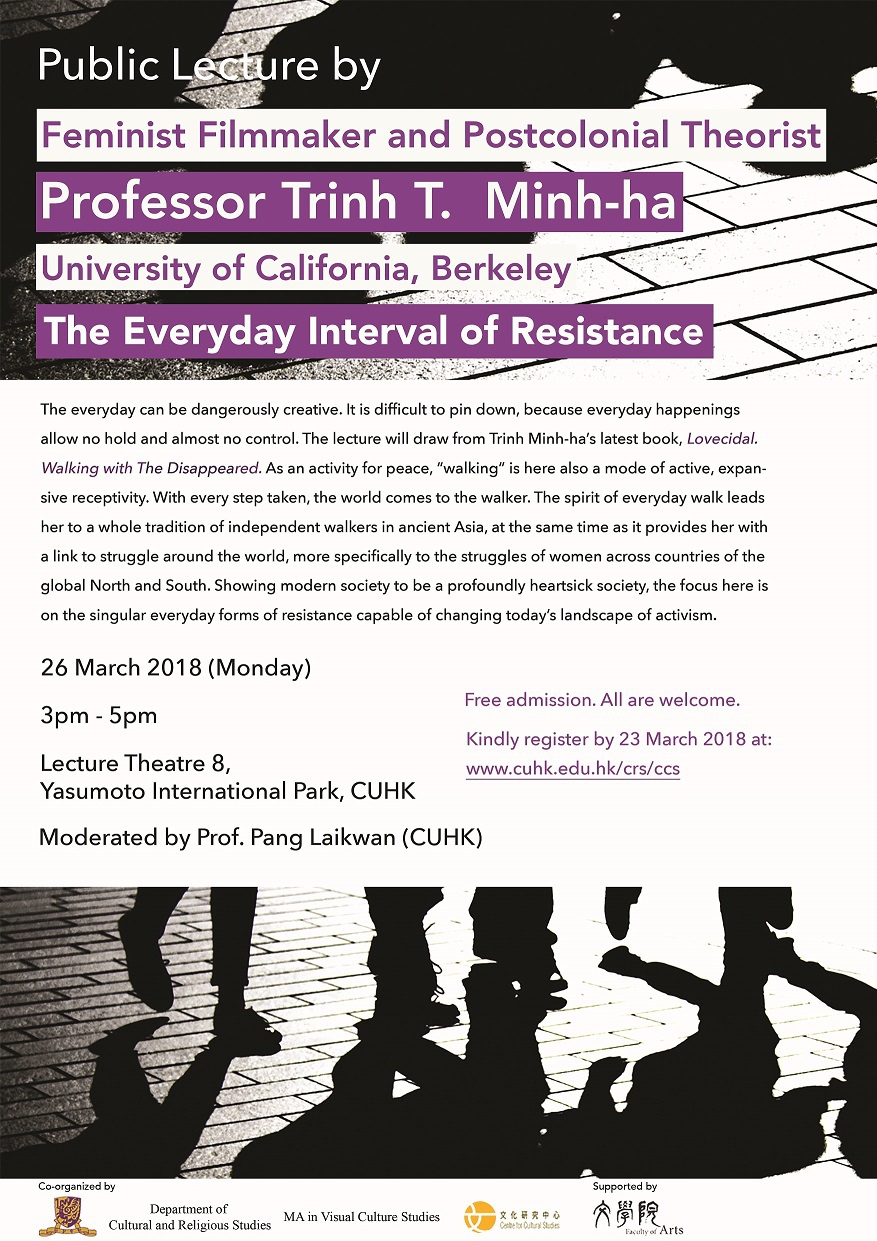Events
Public LectureThe Everyday Interval of Resistance
26 Mar 2018
3:00pm – 5:00pm
Lecture Theatre 8, Yasumoto International Park, CUHK
Prof. Trinh T. Minh-ha (University of California, Berkeley)
About Speaker Trinh T. Minh-ha is a filmmaker, writer, composer and Professor of Rhetoric and of Gender &Women’s Studies at the University of California, Berkeley. Her work includes: eight feature-length films (including among others Night Passage 2004, The Fourth Dimension 2001 and Surname Viet Given Name Nam, 1989) honored in numerous retrospectives around the world; several large-scale collaborative installations such as L’Autre marche (Musée du Quai Branly, Paris 2006-2009), Old Land New Waters (3rd Guangzhou Triennale, China 2008); numerous books, more recently Lovecidal. Walking with The Disappeared (2016), D-Passage. The Digital Way (2013), Elsewhere, Within Here (2011), Cinema Interval (1999). She was the recipient of many awards, including the Wild Dreamer Lifetime Achievement Award at the Subversive Festival, Zagreb, Croatia, 2014; the Lifetime Achievement Award from Women’s Caucus for Art, 2012; and the Trailblazers Award, MIPDOC, Cannes Documentary Film, France, 2006.
Website: http://www.cuhk.edu.hk/crs/ccs
Enquiry: 39431255 / cuccs@cuhk.edu.hk
A public lecture on “The Everyday Interval of Resistance”will be held by world-renowned feminist filmmaker and postcolonial theorist Prof. Trinh T. Minh-ha on 26 March 2018. In this lecture, Prof. Trinh will explore singular everyday forms of resistance capable of changing today’s landscape of activism.
The everyday can be dangerously creative. It is difficult to pin down, because everyday happenings allow no hold and almost no control. The lecture will draw from Trinh Minh-ha’s latest book, Lovecidal. Walking with The Disappeared. As an activity for peace, “walking” is here also a mode of active, expansive receptivity. With every step taken, the world comes to the walker. The spirit of everyday walk leads her to a whole tradition of independent walkers in ancient Asia, at the same time as it provides her with a link to struggle around the world, more specifically to the struggles of women across countries of the global North and South. Showing modern society to be a profoundly heartsick society, the focus here is on the singular everyday forms of resistance capable of changing today’s landscape of activism.


